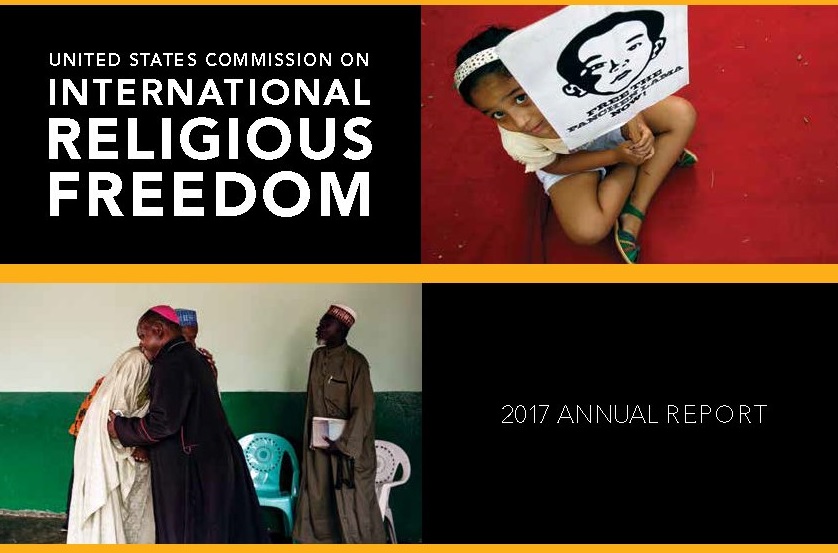United States Commission on International Religious Freedom said that religious freedom for the majority-Shi’a community in Bahrain deteriorated this year.
In the annual report it released on Wednesday (April 26, 2017), the USCIRF noted that there was a sharp increase in the number of interrogations, arrests, convictions, and arbitrary detentions of Shi’a Muslim clerics, mostly on unfounded and unsubstantiated charges.
In addition, the American commission highlighted that Bahraini authorities denied some Shi’a clerics access to specific mosques and banned others from conducting Friday prayers, sermons, and other religious services.
Discrimination against Shi’a Muslims in government employment and other public and social services continued, as did inflammatory, sectarian rhetoric by pro-government media, despite officials often making public statements condemning sectarian hatred and violence, the report said.
Although the government continued to make progress in implementing some recommendations from the 2011 report of the Bahrain Independent Commission of Inquiry (BICI), it has not fully implemented recommendations that would redress past abuses against Shi’a Muslims and further improve religious freedom conditions, the report highlighted.
As a consequence of deteriorating conditions, in 2017 USCIRF places Bahrain on its Tier 2 for the first time. Between 2012 and 2016, Bahrain was covered in the Other Countries Monitored section of the Annual Report.
Concerning recommendations, the American Commission called to address religious freedom concerns with the Bahraini government both privately and publicly and report openly on the government’s success or failure to implement genuine reforms.
It also urged to press for at the highest levels and work to secure the unconditional release of prisoners of conscience and religious freedom advocates, and press the country’s government to treat prisoners humanely and allow them access to family, human rights monitors, adequate medical care, lawyers, and the ability to practice their faith.
The commission urged the Bahraini government to cease its targeting of individuals, particularly religious leaders, on the basis of religion or belief or advocacy of human rights and religious freedom.
It also called to ensure clear and consistent messaging at all levels of the U.S. government regarding Bahrain’s human rights and religious freedom obligations under international law, and to assist in the training of government entities, including security officials, prosecutors, and judges, to better address sectarian violence and incitement through practices consistent with international human rights standards.
The USCIRF recommended to include Bahraini civil society and religious leaders in exchange and U.S. visitor programs that promote religious tolerance, interreligious understanding, and interfaith dialogue. It urged the Bahraini government to implement fully the BICI recommendations, including those related to freedom of religion and belief, sectarian incitement, and accountability for past abuses against the Shi’a community;
The American watchdog reiterated its call to undertake and make public an annual assessment of Bahrain’s progress, or lack thereof, on implementing BICI recommendations. It urged the Bahraini government to reimburse the Shi’a community for expending its own funds to rebuild seven mosques and religious structures that were demolished in 2011.
While urging the Bahraini government to pass a law in the Shura Council addressing incitement to violence in the media, ensuring compliance with international human rights standards; the commission also urged the Bahraini government to cooperate fully with international mechanisms on human rights issues, including by inviting visits from the United Nations Special Rapporteur on freedom of religion or belief.



 العربية
العربية